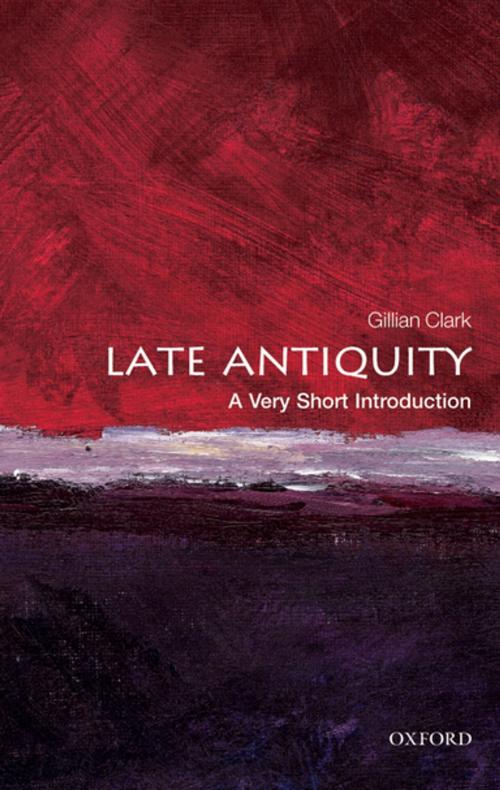| Author: | Gillian Clark | ISBN: | 9780191611407 |
| Publisher: | OUP Oxford | Publication: | February 24, 2011 |
| Imprint: | OUP Oxford | Language: | English |
| Author: | Gillian Clark |
| ISBN: | 9780191611407 |
| Publisher: | OUP Oxford |
| Publication: | February 24, 2011 |
| Imprint: | OUP Oxford |
| Language: | English |
Late antiquity: decline or transformation, conflict or interaction? Late antiquity is the period (c.300 - c.800) in which barbarian invasions ended Roman Empire in Western Europe by the fifth century and Arab invasions ended Roman rule over the eastern and southern Mediterranean coasts by the seventh century. Asking 'what, where, and when' Gillian Clark presents an introduction to the concept of late antiquity and the events of its time. Not only a period of cultural clashes, political restructurings, and geographical controversies, Clark also demonstrates the sheer richness and diversity of religious life as well as the significant changes to trade, economy, archaeology, and towns. Encapsulating significant developments through vignettes, she reflects upon the period by asking the question 'How much can we recognise in the world of late antiquity?' ABOUT THE SERIES: The Very Short Introductions series from Oxford University Press contains hundreds of titles in almost every subject area. These pocket-sized books are the perfect way to get ahead in a new subject quickly. Our expert authors combine facts, analysis, perspective, new ideas, and enthusiasm to make interesting and challenging topics highly readable.
Late antiquity: decline or transformation, conflict or interaction? Late antiquity is the period (c.300 - c.800) in which barbarian invasions ended Roman Empire in Western Europe by the fifth century and Arab invasions ended Roman rule over the eastern and southern Mediterranean coasts by the seventh century. Asking 'what, where, and when' Gillian Clark presents an introduction to the concept of late antiquity and the events of its time. Not only a period of cultural clashes, political restructurings, and geographical controversies, Clark also demonstrates the sheer richness and diversity of religious life as well as the significant changes to trade, economy, archaeology, and towns. Encapsulating significant developments through vignettes, she reflects upon the period by asking the question 'How much can we recognise in the world of late antiquity?' ABOUT THE SERIES: The Very Short Introductions series from Oxford University Press contains hundreds of titles in almost every subject area. These pocket-sized books are the perfect way to get ahead in a new subject quickly. Our expert authors combine facts, analysis, perspective, new ideas, and enthusiasm to make interesting and challenging topics highly readable.















